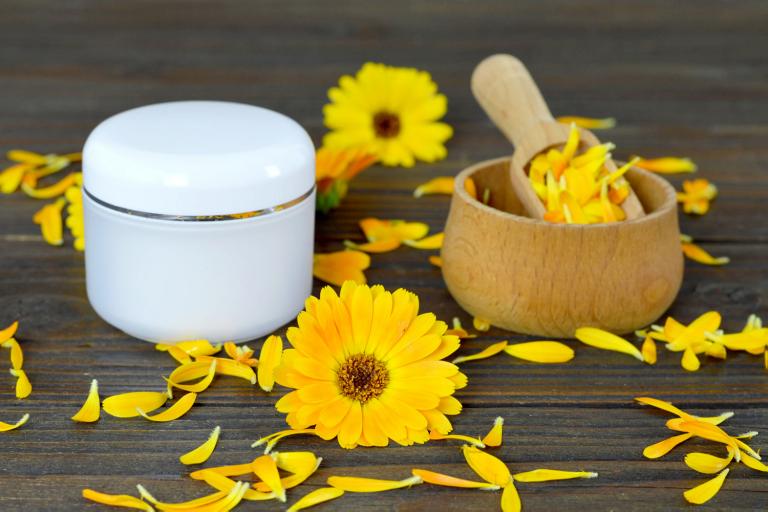Hemorrhoids—swollen, sometimes bleeding veins in the anus—are nothing new. Ancient medical texts discuss them. Fortunately, we’ve moved past some of the old treatments—a hot poker and a prayer to St. Fiacre, the patron saint of hemorrhoids. Yet many of the historical herbal and dietary approaches remain useful.
Causes of Hemorrhoids
Underlying causes or triggers of hemorrhoids include:
- constipation
- pregnancy
- obesity
- poor vascular lining
- poor circulation
Vascular lining weakens with age.
Preventing Hemorrhoids
-
Increase Fiber Intake
Softening the stools with dietary fiber relieves constipation and eases the pressure on hemorrhoids, reducing their severity and discomfort.
Psyllium, ground flaxseed, beans, bran, and vegetables can add more fiber to your diet, which can help with hemorrhoids.
Start slowly, gradually increasing your fiber and fluid intake to give your digestive system and gut flora a chance to adjust and minimize gas and bloating.
-
Listen to Your Body
Make time to go to the bathroom and obey the urge. Waiting to have a bowel movement because it’s inconvenient reduces your colon’s natural peristalsis movement.
-
Stay Moving
Excessive sitting can also aggravate hemorrhoids. Regular exercise reduces them.
Natural Hemorrhoid Treatments
-
Blood Vessel Toners
Internally and externally, herbs and foods that tone the lining of blood vessels and improve circulation may reduce the severity and progression of hemorrhoids.
-
Blue Foods
Blue foods contain helpful pigments including anthocyanins. Try drinking one or two small glasses of 100 percent blueberry or Concord grape juice daily.
-
Rutin (a Bioflavanoid)
The bioflavanoid rutin helps, and is available as a supplement or as buckwheat tea.
-
Horse Chestnut Seed Extract to Tighten and Tone Blood Vessels
Horse Chestnut Seed Extract (Aesculus hippocastanum), taken internally or applied externally, profoundly and quickly tightens and tones the blood vessels and improves circulation. Use only the standardized seed extract internally. Crude herbal preparations contain toxins (typically fine topically). Even the properly prepared extract may cause nausea and other side effects. This is a type of chestnut; avoid it if you have nut allergies.
-
Butcher’s Broom for Improved Circulation
Butcher’s Broom (Ruscus aculeatus) is an herb that provides similar, safer, and better tolerated benefits compared to horse chestnut. The two herbs are often combined in formulas for hemorrhoids and varicose veins. Rich in tannins, butcher’s broom works topically and internally but may upset the stomach in sensitive individuals or when taken in high doses. Take it as a tincture or capsule or use it as a cream or liniment.
-
Gotu Kola for Gradual Healing of Hemorroids
Gotu Kola (Centella asiatica) leaf, comparatively, is much safer, gentler, and well tolerated, but it also may take longer to see results. Gotu kola improves circulation while gradually increasing the integrity of the blood vessel lining. It can be taken internally as a standardized extract or in relatively large doses of the crude herb, and it can be applied topically solo or mixed with high-tannin herbs. It can be taken as a tincture, capsule, or tea or used in a cream or liniment.
-
Yarrow to Improve Circulation Inside and Out
Consider adding in yarrow (Achillea millefolium), an herb that improves circulation while toning the vessel lining, used internally and externally.
-
-
Topical Relief
-
Witch Hazel to Help Soothe Discomfort
Witch Hazel (Hamamelis virginiana) bark contains strong tannins reputed for hemorrhoids. Historically, herbal doctors sometimes used it internally, but it’s not safe in high doses or for long-term use and is best employed as a topical remedy via liniment, sitz bath, cream, or ointment. Most topical hemorrhoids products—including homeopathic creams and some forms of Preparation H—contain witch hazel.
-
Calendula for Reducing Inflammation and Irritation
I find calendula (Calendula officinalis) oil or cream useful for my clients indirectly, easing itchiness, inflammation, and irritation.
-
Precautions
- Always double-check for herb-drug interactions (for example, yarrow can interact with blood thinners).
- Do not take these herbs internally if you’re pregnant. You can still use fiber, juice, and topical preparations.
Be Sure to Check in with Your Physician
Hemorrhoids should be examined by a doctor to grade their severity and ensure that something more serious—such as cancer or Crohn’s disease—is not at play.

